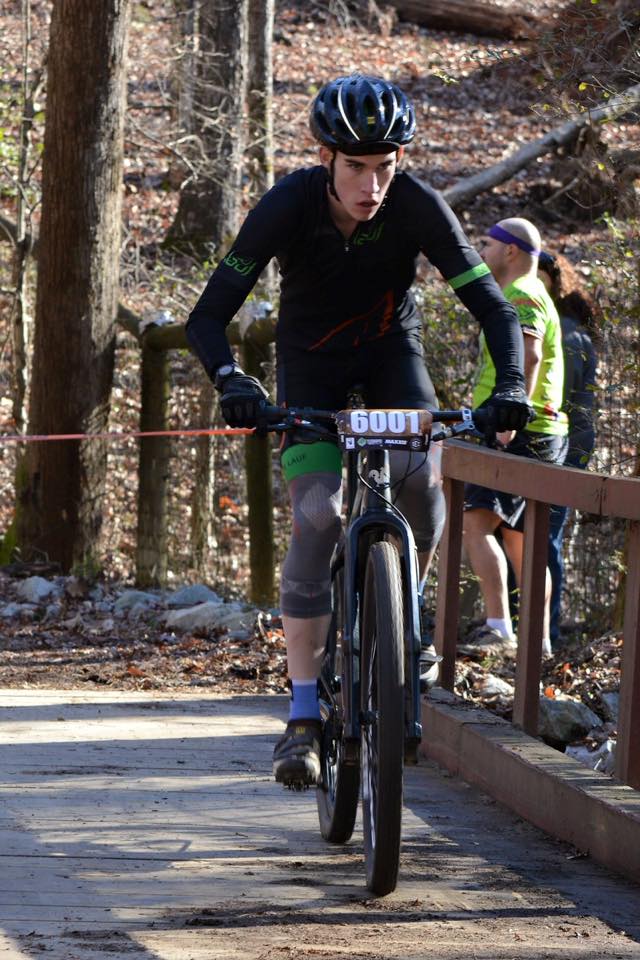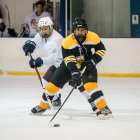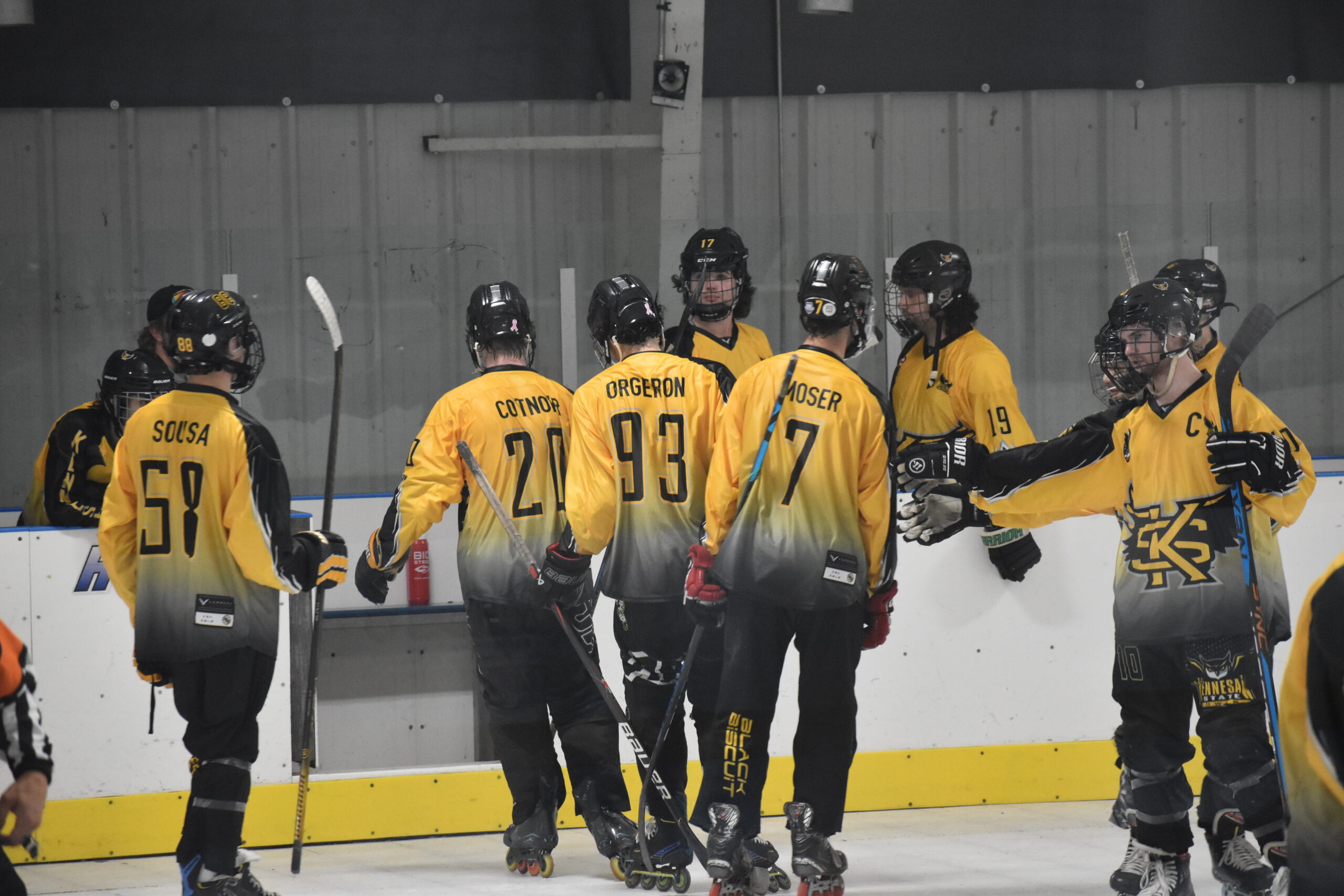As a middle school student who was widely involved in mainstream sports growing up, Ben Edwards never imagined that his path to collegiate success in athletics would be cycling.
Nonetheless, Edwards, who is a student at Kennesaw State University, has quickly risen to prominence in collegiate cycling all across the southeast. Though Edwards’ rise as a cyclist has been quick, it didn’t come without plenty of adversity.
While competing in a school track meet — a sport that he excelled in while in middle school — Edwards suddenly couldn’t support his own weight with his legs and collapsed with a sharp pain in his back. After being sent to the hospital, the doctors diagnosed it as a pinched nerve, and he was sent home to rest. Unfortunately, the symptoms only progressed, and he eventually was unable to move his legs. Edwards was taken back to the hospital, and the results were much more serious. When he arrived, the doctors labeled Edwards as a quadriplegic and put him into medically induced hypothermia to reduce swelling in his spine. On his first night in ICU, Edwards’ parents were told that their son might never be able to walk again. He was only 13 years old.
“After a week of testing for everything from spider bites to Guillan-Barre, (the doctors) deduced that I suffered an extremely rare stroke in which a piece of cartilage in my blood stream blocked blood-flow to my spine and subsequently shut my spine down,” Edwards said. “The type of stroke I had is called Fibro-cartilaginous Embolism Myelopathy and is so rare that only six people have ever had it, and, oddly enough, I am the only person to have survived it.”
Edwards wouldn’t allow “just surviving” a type of stroke that no one had before to be the end of his triumphs. His progress was alarmingly fast, and to the surprise of everyone that had treated him, Edwards took unassisted steps before he was even released from an intense physical therapy clinic in Seattle. Thanks to a rigorous routine to improve his motor functions and a strong history at succeeding at whatever he put his mind to, Edwards went from being predicted to lose his ability to walk to having the opportunity to nearly return to his normal life.
“It’s interesting how much we take for granted,” Edwards said. “I literally had to relearn how to do every task that I go through throughout the day. And most things about my life changed … I went from being incredibly athletic to not being able to compete in sports at all, which was a huge adjustment.
Though sports like basketball and track — which Edwards competed in before the stroke — were no longer an option to participate in competitively, there was a sport that was deeply rooted in Edwards’ family that could possibly work. That sport was cycling.
“My mom was a nationally ranked collegiate cyclist, and my dad was successful in his college’s conference,” Edwards said. Growing up, cycling was always around. Instead of watching football, we would watch the Tour de France on TV. We would regularly go on family bike rides, so it was inevitable that I would start taking cycling seriously. But it wasn’t until my sophomore year of high school that the sport “clicked” for me. My dad invited me on a mountain bike ride that was actually a small local race, and I got dead last. But I had not had that much fun before, and the racing aspect sparked my competitive drive, which hadn’t been sparked since my stroke. That the effects of my stroke wouldn’t significantly hinder my performance was even better.”
The result of Edwards finishing dead last in a race wouldn’t be a trend for very long. He competed in numerous events across the southeast in his last year in high school, and in the blink of an eye, he suddenly had colleges all around that could provide him with a chance to be a collegiate cyclist.
“After the high school series ended, I reached out to King University and Lees-McRae College,” Edwards said. “Both schools offered me a very significant amount of money to race for their varsity programs, but I decided that staying in Georgia was the best decision for me. I had heard that Kennesaw State had a club cycling team and decided that Kennesaw was best for me.”
That decision has turned out just fine for Edwards, who has finished admirably in nearly every competition he has entered this season — including a top five individual finish in a huge tournament in Alabama last weekend. His passion, dedication, and talent have also transferred in the sport off of the track. Edwards was selected as an intern for the Georgia Interscholastic Cyclist League where he helps market and promote the sport and gets the opportunity to mentor young cyclists.
“What I love most about my internship is that I get to be a mentor for young cyclists and get to see them grow as cyclists and people,” Edwards said. “It’s incredibly rewarding, and I’m honored that I get to be involved with the league.”
To this day, Edwards still feels the complications from the stroke in his every day life. While it may be a hindrance, Edwards understands the hardest part of his journey has been accomplished.
“I’m still learning how to do certain things, and I’m still trying to strengthen my right hand, which will probably never be 100 percent again,” Edwards said. “I wouldn’t say that I’ve ‘passed the journey,’ but I definitely feel stronger in a sense after going through the recovery process. When I’m doing something difficult, I just think that the task isn’t as difficult as the recovery process from the stroke, and that is definitely a motivator.”
Using the momentum from his impressive results in competitions this year, Edwards hopes to qualify for the Collegiate Mountain Bike Nationals this semester. Even though his journey has only started and he still has obstacles to overcome every day due to the effects of the stroke, Edwards uses his experiences as motivation to continue his positive outlook.
“I think the biggest thing is that all negatives can be turned into a positive,” Edwards said. “If I hadn’t had my stroke, I would’ve never started cycling, and I would never have gotten to the level that I am in cycling than I would’ve in another sport. Our negatives in life give us the mental toughness to overcome challenges, and, most importantly, they give us the ability to appreciate and celebrate our lives’ successes and positives.”



